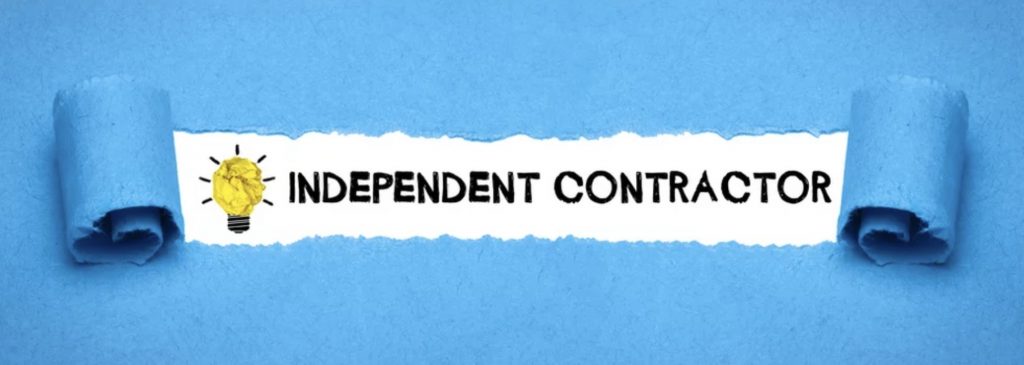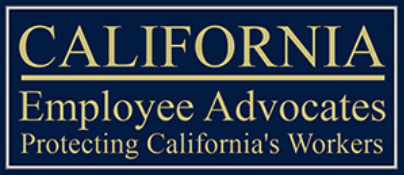Misclassification of employment status is an all too common problem in California, with many employers improperly classifying their workers as independent contractors instead of employees. Improper classification can be the result of a mistake but may be the result of intentional filing errors by employers attempting to circumvent employee-related costs they would otherwise be liable for. This misclassification can result in significant unexpected financial expenses and losses for workers resulting from underpayment of employment taxes and costs the employer is responsible to pay. These additional expenses and liabilities can result in serious financial responsibilities, as well as legal consequences for employers.
This article covers in detail how to determine if your employment status has been misclassified and the steps you should follow to correct your filed employment status.. We also discuss the expenses and liabilities, often unknown, that employees face when an employer mistakenly classifies them as an independent contractor instead of an employee. Additionally we cover the types of expenses and penalties the misclassified employee may be subject to, and the potential penalties for employers who misclassify employees.
How to Determine if Your Employment Status Has Been Misclassified
In California, the key factor used to determine whether a worker is an employee or an independent contractor is their control over their work activities. If the employer controls the manner and means the worker performs the work, then the worker is an employee. If the worker has control over his or her work activities, including how it is performed, and when and where it is performed, then they are most likely an independent contractor.
There are several factors that can help you determine if your employment status has been misclassified. The main factors include:
- Control: If your employer exercises a significant degree of control over the manner and means by which you perform your work, then it is likely that you have been misclassified as an independent contractor.
- Equipment and supplies: If your employer provides the equipment and supplies necessary to perform your work, then you are more likely to be considered an employee.
- Work schedule: If you are required to work set hours and follow a specific schedule, then you are more likely to be considered an employee.
- Benefits: If you are not eligible for benefits such as health insurance, sick leave, or vacation time, then you may have been misclassified as an independent contractor.
- Tax forms: If your employer has not provided you with a W-2 form, then you may have been misclassified as an independent contractor.
In California, the State uses the ABC test to determine classification following the AB5 law signed into effect September 2019. Under the ABC test, a worker is considered an employee and not an independent contractor, unless the hiring entity satisfies all three of the following conditions:
- The worker is free from the control and direction of the hiring entity in connection with the performance of the work, both under the contract for the performance of the work and in fact;
- The worker performs work that is outside the usual course of the hiring entity’s business; and
- The worker is customarily engaged in an independently established trade, occupation, or business of the same nature as that involved in the work performed.

Correction of Misclassification
If you believe your employment status is or has been misclassified, there are several steps you can take to address and remedy the situation. These include:
- Talk to your employer: If you are unsure about your employment status, it is best to speak directly with your employer. Explain your concerns and ask for clarification on your employment status.
- Contact the California Labor Commissioner’s Office: If your employer does not provide a satisfactory response, you can contact the California Labor Commissioner’s Office for assistance. The office can investigate your case and determine if you have been misclassified as an independent contractor.
- File a claim: If you believe that your employment status has been misclassified, you can file a claim with the California Labor Commissioner’s Office. This claim can be filed online or in person, and it is important to provide as much evidence as possible to support your case.
Expenses and Liabilities for Employees When Misclassified as Independent Contractors
When an employee is misclassified as an independent contractor, they are not entitled to many of the benefits and protections afforded to employees. This misclassification can result in significant financial losses and unexpected expenses for workers including:
- Lack of benefits: Independent contractors are not eligible for benefits such as health insurance, sick leave, or vacation time. This can result in significant financial losses for workers.
- No overtime pay: Independent contractors are not entitled to overtime pay, even if they work more than 40 hours per week.
- No minimum wage: Independent contractors are not entitled to minimum wage, and they may earn less than minimum wage if they are not paid a fair rate for their work.
- No workers’ compensation: Independent contractors are not eligible for workers’ compensation, which can leave them vulnerable to financial losses if they are injured on the job.
- Self-employment taxes: Independent contractors are responsible for paying their own self-employment taxes, which can result in a significant increase in their tax bill.
Penalties for Employers Who Misclassify Employees as Independent Contractors
Misclassifying employees as independent contractors can result in significant legal consequences for employers. Some of thel penalties for misclassifying employees include:
- Back pay: Employers may be required to pay back pay to workers who have been misclassified, including overtime pay, minimum wage, and any other benefits they were entitled to as employees.
- Penalties: Employers may be subject to penalties, including fines and legal fees, for misclassifying employees.
- Liability: Employers may be held liable for any taxes, benefits, or other expenses that were not paid as a result of misclassifying employees.
What Employers Should Do to Correct Misclassification
If an employer has misclassified an employee as an independent contractor, they should take steps to correct the mistake as soon as possible. This includes:
- Reviewing their classification policies: Employers should review their classification policies to ensure that they are in compliance with California law.
- Reclassifying workers: If necessary, employers should reclassify workers as employees and provide them with the benefits and protections afforded to employees.
- Paying back pay and benefits: Employers may be required to pay back pay and benefits to workers who have been misclassified, and they should take steps to ensure that these payments are made in a timely manner.
- Paying any outstanding taxes: Employers should pay any outstanding taxes and other expenses that were not paid as a result of misclassifying employees.
Don’t Wait to Take Action
Misclassification of employment status is a serious issue in California, and it results in significant financial losses and legal issues for employees and employers alike. If you believe that your employment status has been misclassified, it is important to take action to correct the mistake as quickly as possible. It is imperative to ensure that you are receiving the benefits and protections that you are entitled to as an employee, as well as making sure to prevent any unexpected expenses down the road for unpaid employment taxes and more. Additionally, employers who have mistakenly misclassified employees should take steps as soon as possible to correct the mistake and ensure that they are in compliance with California law.
If you think you have been the victim of wrongful termination, wage discrimination or theft, or other employment law violations in California, please contact us for a free confidential strategy session with a Human Resources Specialist to know your rights.
Contact Us:


What’s up, I am a huge fan of your website! I tend to agree with your point as I am currently employed as a customer service representative for a full-service BPO company.
Thank you. This information was very helpful. As an independent contractor, I needed
to know where I stood with my employer. Now I can move forward knowing there is a law firm ready to help if I have a case.